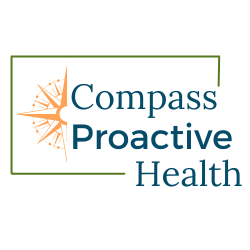The 5 Stages of Change
The Trans-Theoretical Model of Change was developed in late 1980s and was originally applied to clients working to quit smoking and overcome other addictions. (Prochaska & DiClemente, 1983). The model shows 5 categories that you can fall into depending on your level of readiness to make a change. Reviewing the stages around a specific instance in your life can give you a glimpse into where you might be in your process.
The Precontemplation Stage - You’re not thinking about it at all. You’re not even reading this blog. You never even typed anything into Google. But perhaps there is something you just learned about at work, or the doctor just gave you some health information you’re just not ready to process about your cholesterol numbers. Recognizing you are in this stage is the first step to realizing you need to change something. I mean, hey, we all have to start somewhere, right?
The Contemplation Stage - Something has got to give. You recognize that there is an issue, something that has been nagging at you deep down in the pit of your stomach. Sometimes you dream about it, but never the exact thing, waking up restless and a little agitated. You’ve been ruminating on all the possibilities of what dynamic of your life needs to shift or maybe you know exactly what it is and you’ve only now just been able to start processing what it would mean to change that aspect of your life. This is both exciting and scary and when we need the most support to weight the pros and cons of change.
The Preparation Stage - You’re ready to make a change! This is the stage where things get critical. You’ve visualized where you would like to be and can already feel how good it will be to get there. But the distance from here to there is filled with the how to’s. Success depends on the right preparation and a bit of going with the flow of things. In this stage you’re doing the research, breaking your main goal down into smaller, more achievable nuggets of personal inspiration. Here, you take the time to try and identify some of the road blocks you may come up against in your journey to this new vision of yourself and develop strategies to circumvent them.
Action Stage - It’s go time! You’ve put in the preparation, done the visualizations, identified barriers; you are armed to the teeth with strategies to get you where you want to go. You have the tools and knowledge and it’s time to apply it and gain the skills. The first 6 months are hard. This is where failure happens. But failure is how we learn. Neurologically speaking, it’s how we adapt. In this stage we take those failures and try not to look at them as set backs, but as growth opportunities. The only timeline we are on is the one we set ourselves.
Maintenance Stage - We’ve achieved the vision, or at least something close to it. It’s probably not perfect, but you’ve also probably realized that perfect doesn’t exist because you have begun to understand that constant adaptation is what is keeping you successful as you maintain this new behavior. You are now in a period of growth and introspection around your goal that allows you the freedom to make minor tweaks to your behavior, molding it into exactly what works for you.
Relapse Stage - Yes, it happens. But it’s not the end of all your hard work. This is the stage where we look back on our past experiences, what made us successful initially and we pull out the bits that we can use to get us back on track. Will it be the same as before? No. Every growth changes us, forces us to reevaluate where we are at and adapt again. Morphing you into a greater, more resilient person.
These stage are a broad lens to evaluate yourself through. They can be a roadmap for where you are at, and where you would like to be. A Health Coach can be a partner to help you talk through these stages and establish where you are at, helping map out your journey to achieving your goal.
